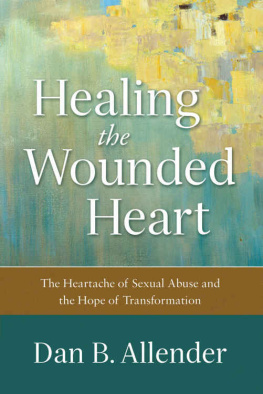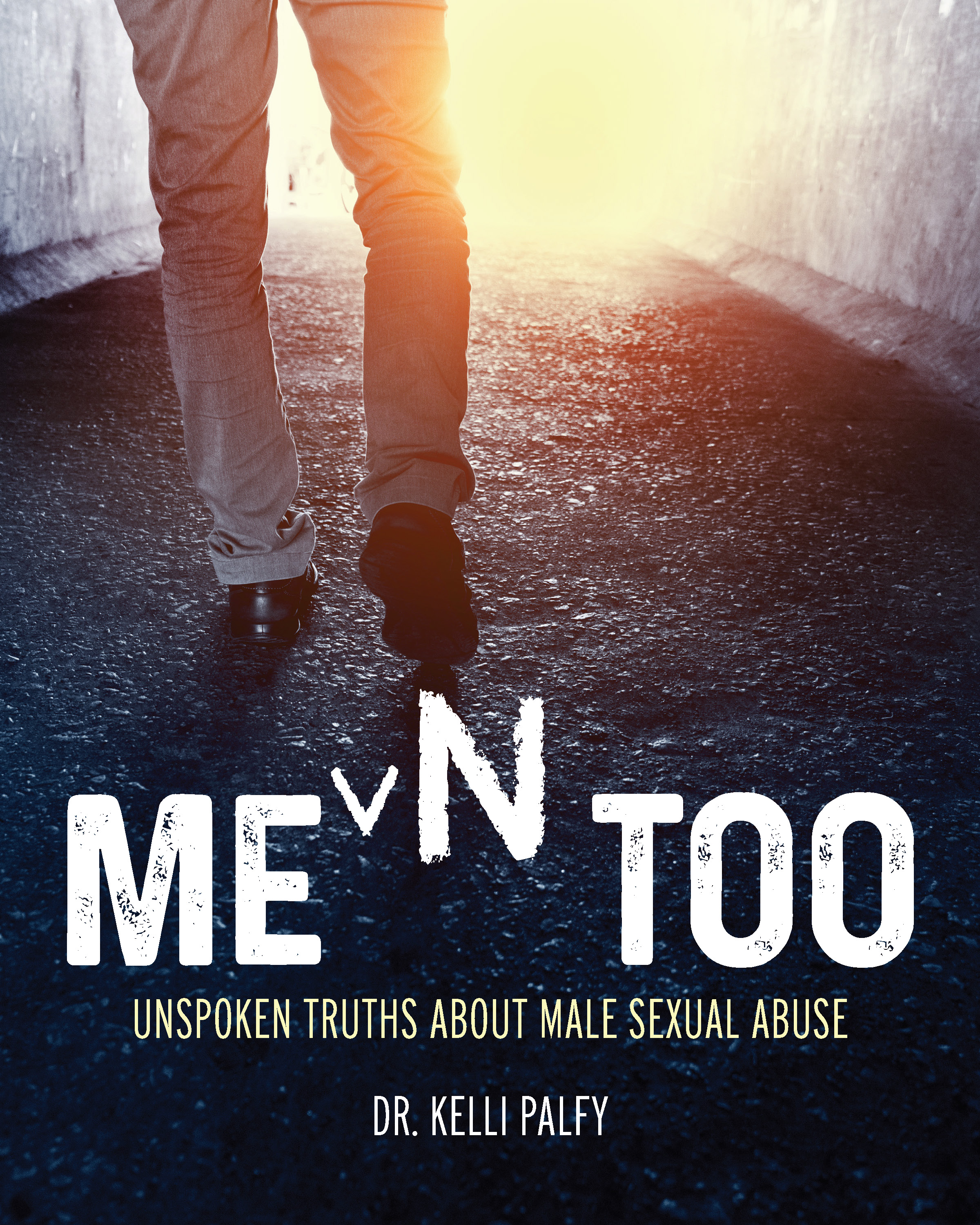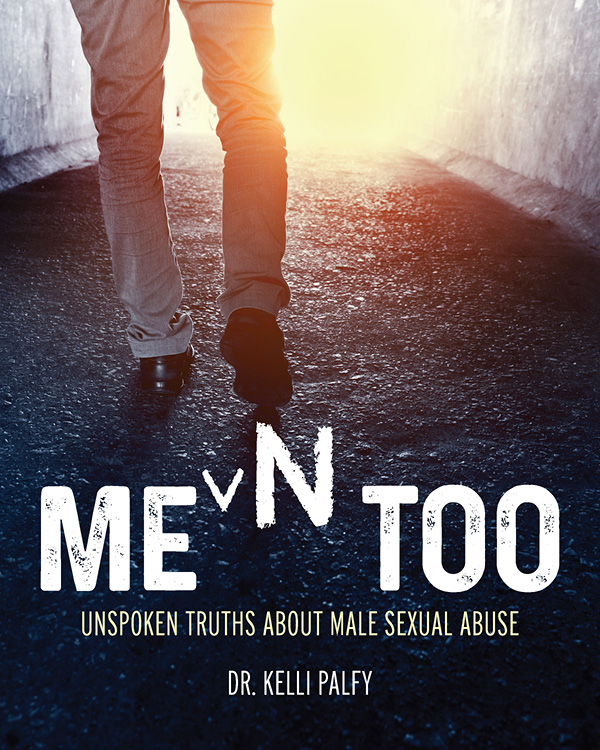
Copyright 2019 Kelli Palfy
Published 2020
Men Too: Unspoken Truths About Male Sexual Abuse
Dr. Kelli Palfy
All rights reserved. No part of this publication may be reproduced, distributed, or transmitted in any form or by any means (including photocopying, audio recording, or other electronic or mechanical methods) without the prior written permission of the publisher, except in the case of noncommercial uses permitted by copyright law. For other permission requests, write to the publisher, addressed peaksandvalleyspublishing@gmail.com".
Peaks & Valleys Publishing
peaksandvalleyspublishing@gmail.com
ISBN: 978-1-9992925-1-5 (print)
ISBN: 978-1-9992925-0-8(ebook)
Scripture taken from the New King James Version. Copyright 1982 by Thomas Nelson. Used by permission. All rights reserved.
Ordering Information:
Special discounts are available on quantity purchases by corporations, associations, and others. Please contact Peaks & Valleys Publishing for more details.
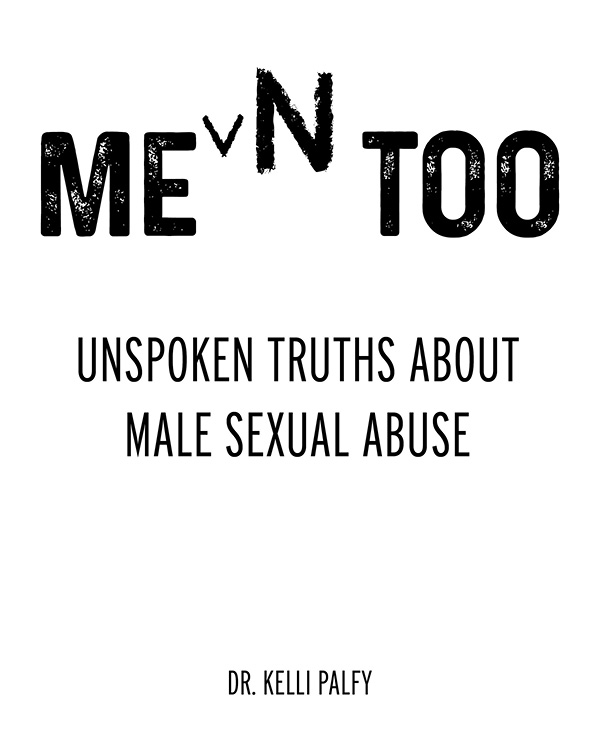
This book is dedicated to
the men who shared their stories,
to those who have yet to share,
and to those who encouraged me
to write this book.
Cautionary Note
Many of the stories in this book may be hard to read due to their graphic content. Nonetheless, they are true, neither exaggerated nor embellished for dramatic effect. They are told to convey to you what takes place in our societyto inform and educate you about male sexual abuse. If you become emotionally overwhelmed, I suggest you pause, disengage from reading this book, and take care of yourself. If you are an abuse survivor yourself, I recommend finding and working with a trained trauma therapist who specializes in sexual abuse to assist you in your healing process.
Peppered throughout the book are psychoeducational pieces (in text boxes) explaining the emotional and physiological experiences of traumatized individuals. Additional resources for further reading are listed at the back of the book. This information doesnt qualify anyone to begin treating abuse victims without professional training.
Please note the terms offender, perpetrator, abuser, and molester are used interchangeably and are intended to mean the same thing. The word disclose is used to refer to the sharing of personal information, in this case the experience of confiding in or telling someone about abuse.
C on tents
Cautionary Note
Introducing the Life of Jacob
PART 1: UNDERSTANDING OFFENDERS
PART 2: THIS IS WHAT HAPPENED TO ME
The Men
Aaron: I Didnt Know Much About Sex
Ricky: I Liked the Attention
Jacob: How Could I Do That?
Anthony: Talk About It and It Will Kill You
Garrett: I Knew Something was Wrong
Gordon: My Dirty Little Secret
Josh: I Thought It Was My Fault
Leon: I Didnt Remember
Phillip: It Never Occurred to Me that I Should Tell
Leonard: Why Do You Hate Your Mother so Much?
Michael: We Dont Talk About That Kind of Stuff
Allen: I Thought I was Going to be in Trouble
Julien: He Stole My Voice
PART 3: BARRIERS TO DISCLOSURE: WHY MEN DONT DISCUSS SEXUAL ABUSE
PART 4: IDENTIFYING CHILD SEXUAL ABUSE
PART 5: WHAT ADULTS CAN DO TO PREVENT ABUSE OR DETECT IT SOONER
PART 6: A GLANCE AT THE BIGGER PICTURE OF ADULT MALE SEXUAL ABUSE
Conclusion
Appendix
Acknowledgments
Endnotes
Introducing the Life of Jacob
Jacob injured his knee in his sophomore year of high school, bent it at a right angle sideways, during football practice. His coach rushed him to the hospital where doctors told him he needed immediate surgery. They needed his fathers permission to operate and requested he come to the hospital immediately.
When Jacobs father finally arrived four hours later the coach was furious. He asked why it had taken him so long to get to the hospital.
We havent been able to give him any pain medication, the coach stated.
His father rationalized, Well, I was shingling the shed, and when the shingles are running straight through you don t stop.
But Jacob has been sitting here in pain for hours! the coach protested.
He can put up with it , Jacobs father responded.
Disgusted, but trying to sidestep a further argument, the doctor asked Jacobs father to sign and consent so he could do the recommended surgery. Jacobs father refused.
The doctor pleaded with him. If he doesnt have the surgery, he will have problems later in life.
Thats not my problem, he replied.
The doctor couldnt believe a father could be so callous toward his own son. He pled with him further.
His knee is going to constantly come in and out of joint and will lock up on him. Hell be falling down stairs and by the time hes in his fifties, hell be in pain.
By the time he gets to 50, Ill be dead, Jacobs father declared, and denied Jacob the surgery.
Later that day Jacobs father told him that a female doctor would be coming to talk to him. He warned Jacob not to say a word to her.
Two days later, a female psychiatrist came into his room. The nurses heard you crying at night and I came in to speak to you about what s bothering you. She asked Jacob several times if things were alright at home. He said nothing. He didnt trust that the psychiatrist, or anyone else, could help him. He was not aware of any children that had ever been removed from their parents care, and he believed his parents would take revenge on him for talking. They might even kill him.
Jacobs fear was for valid reason. Throughout his youth, other professionals had good reason to suspect he was being abused (his own grandmother even witnessed him being sexually abused) yet nothing was ever done to stop it. Jacob believed the only way to escape the abuse was to survive until he was able to move out on his own. In the end he was right. No one ever came to his aid.
#MeToo is an important global movement in support of female sexual abuse survivors. Just as dialogues about women as victims of sexual abuse and harassment are needed, so are discussions about male victims of abuse. Jacobs storyand countless untold stories like hishighlight an equally important need to discuss male sexual abuse which is still widely unreported and unacknowledged. This lack of recognition is in part because the boys and men who experience it rarely come forward. They remain silent for a multitude of reasons, including their own confusion, guilt, fear, desire to protect others, and lack of understanding. Many worry that they will be perceived as less of a man if they disclose having been abused. Others fear they will be considered future sexual offenders.
Research conducted in the United States has shown that approximately one out of every six males is sexually assaulted before the age of 16; yet very few of these individuals disclose, pursue charges, or seek treatment.
Who Is This Book For?
First and foremost, this book is written for male survivors of sexual abuse, many of whom still do not recognize themselves as having been victimized. Men and boys often fail to understand theyve been abused for any number of reasons which I discuss in this book. My hope is that through reading the detailed stories shared in this book, other boys and men will gain a better understanding of what abuse looks like, come to recognize themselves as victims and begin to heal and recover. This book is not designed to replace therapy but to supplement healing and inspire men to both seek and accept professional help.

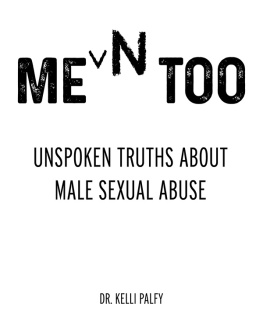

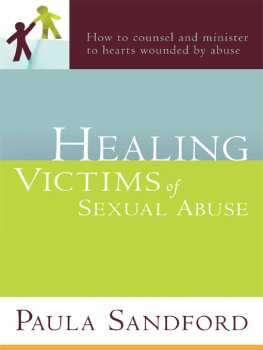
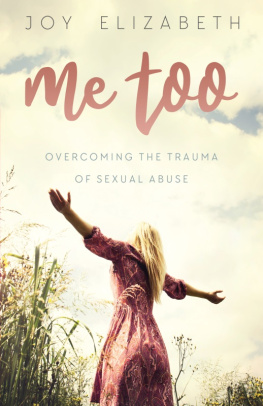
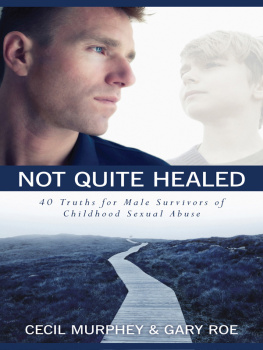
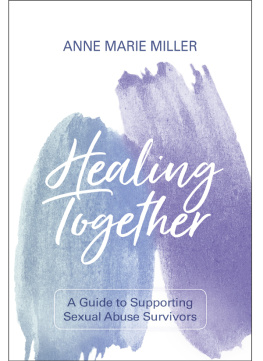
![Heitritter Lynn - Helping victims of sexual abuse: [a sensitive biblical guide for counselors, victims, and families]](/uploads/posts/book/212530/thumbs/heitritter-lynn-helping-victims-of-sexual-abuse.jpg)
